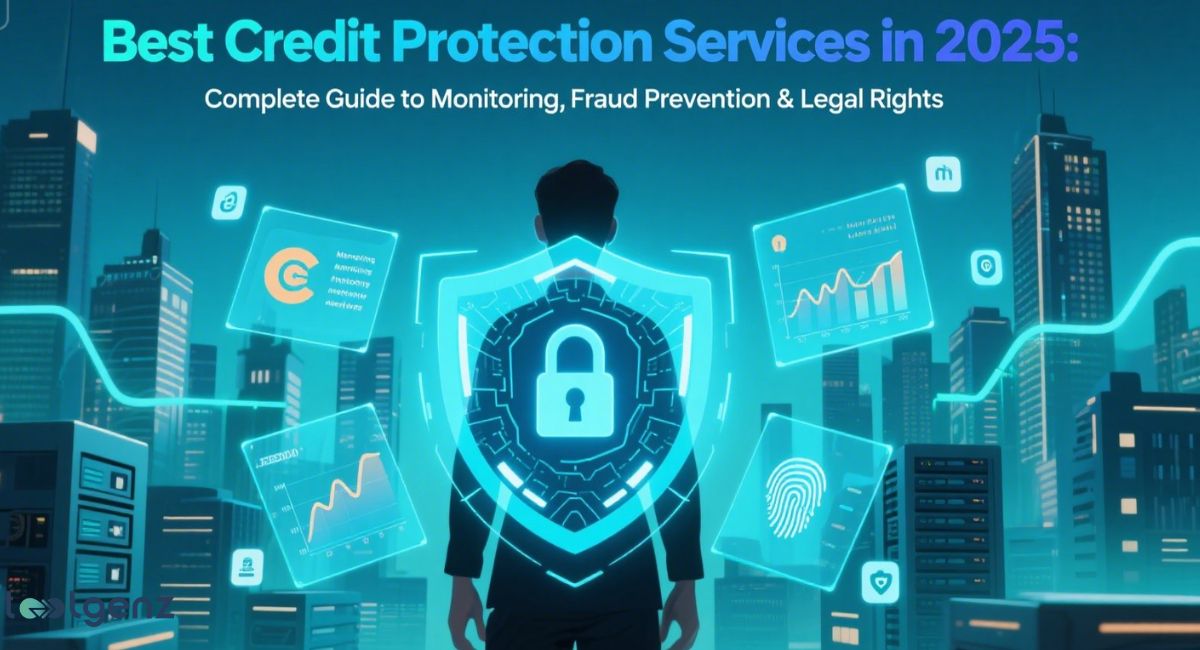In 2025, protecting your credit is more important than ever. With data breaches, unauthorized transactions, and rising cases of identity theft, it’s no longer enough to just check your credit once a year.
You need best credit protection services that offer real-time credit monitoring, strong fraud detection tools, and fast alerts when anything suspicious happens.
This guide will show you the best credit protection services in 2025, how they work, and which ones give you the most value.
We’ll also explain your legal rights and how to respond if you’ve been treated unfairly. Let’s explore how to stay safe, protect your identity, and keep your financial life secure.
The world of credit monitoring has changed fast—and so have the risks. Knowing what to watch for and which services actually help can make all the difference. You deserve peace of mind and a smart plan to defend your credit in today’s digital world.
1. What Is Credit Monitoring and Why It Matters
Think of credit monitoring as a digital watchdog — it keeps an eye on your credit report and lets you know if something shady pops up.
It alerts you if someone opens a new account in your name or if your Social Security number leaks onto the dark web. You get real-time credit fraud alerts that help stop theft before it gets worse.
In 2025, real-time credit monitoring is more advanced. Services now use AI like IBM Watson AI to scan for risk signs.
They scan your reports across all three major credit bureaus — Equifax, Experian, and TransUnion — for anything out of place. Monitoring your credit is the best way to stop unauthorized transactions before they ruin your score.
What makes this even more powerful is the addition of financial transactions alerts, bank account monitoring, and even identity restoration teams on standby. Staying alert and acting fast can save your credit—and your peace of mind.
2. Best Credit Protection in 2025
Many Americans use credit protection services in 2025 to stay safe. Credit protection services now come with powerful options like identity theft insurance, data breach protection, and even family identity protection plans.
Top picks for 2025 include Aura for families, LifeLock bundled with Norton 360 for added security, and Experian Identity Works for a direct line to the bureau.
These offer features like bank account alerts, mobile credit monitoring apps, and even credit restoration services. Some credit protection services include $1 million identity theft coverage to help you recover after a breach.
In today’s digital world, these tools aren’t nice-to-haves — they’re your front-line defense.
Whether you’re protecting your child’s identity or your own Social Security number, choosing the right credit protection services gives you peace of mind and real control over your financial health.
3. Comparison of the Best Credit Protection Services
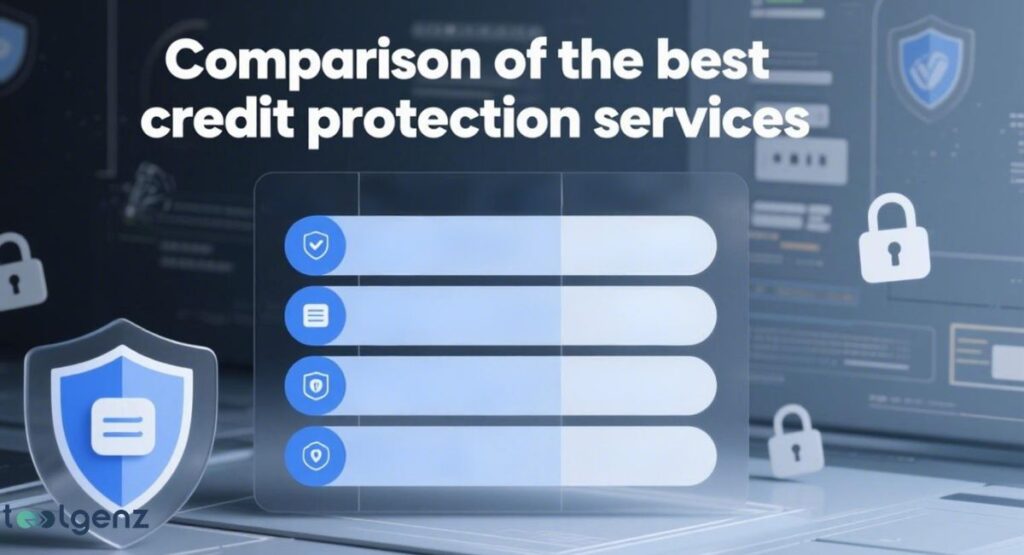
You might wonder how to choose the right credit protection services. Here is a comparison of the top names in the market in 2025:
| Service | Price (Monthly) | Coverage | Bonus Features |
| Aura | $20 | Three credit bureaus, AI tools | Aura VPN, family identity protection |
| LifeLock + Norton 360 | $25 | Up to $1M insurance | Norton 360 antivirus, credit tools |
| Experian IdentityWorks | $19 | Experian only | Annual credit report access, score boost |
| Identity Guard | $17 | All bureaus | IBM Watson AI, fraud warnings |
| IdentityIQ | $22 | Premium tools | Social Security number monitoring |
Each service brings its own strengths to the table — from family protection to AI-driven fraud alerts. For example, Aura VPN includes cybersecurity. Identity Guard focuses on smart fraud detection tools. Choose based on your personal needs.
4. A Detailed List of the Best Credit Protection Services
These are the Best Credit Protection Services:
LifeLock with Norton 360 antivirus is perfect for users who want both credit monitoring and strong personal information security.
It covers all financial transactions alerts, watches your credit utilization, and gives access to identity restoration team support.
If you’re looking to protect your entire household, Aura stands out as a smart choice in 2025.
It protects children, gives alerts for Social Security number leaks, and comes with a full VPN and antivirus bundle. You get automatic fraud alerts and bank account alerts if anything suspicious happens.
Experian IdentityWorks is best for those who want a direct service from a credit bureau.
It provides credit score monitoring, annual credit report access, and fraud alerts if your Experian file changes. Though it monitors only one bureau, it’s trusted and easy to use.
Identity Guard uses IBM Watson AI for smart alerts. This means it can warn you faster than other tools. It watches your financial fraud monitoring, hard inquiries on credit report, and gives early signs of fake accounts.
IdentityIQ zeroes in on catching breaches early, with deep scans and a proactive security team. You also get real-time credit monitoring and support from a U.S.-based identity restoration team.
Together, these services offer a powerful defense against modern threats. No matter your budget or needs, there’s a solution to help you detect unauthorized transactions, avoid scams, and recover fast if your identity is ever stolen.
5. Paid vs. Free Credit Monitoring: Which Should You Choose?
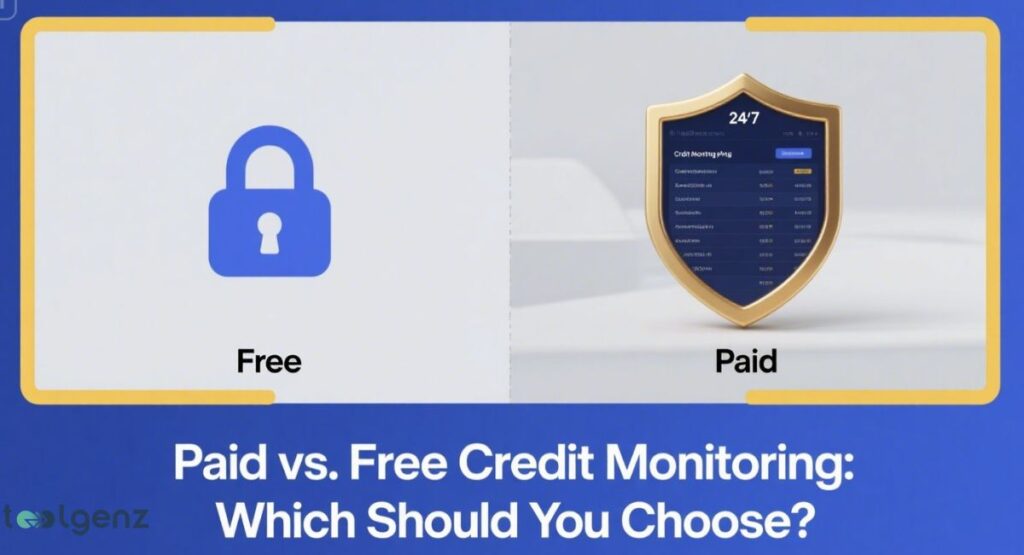
Many ask if free credit protection services like Credit Karma are enough. Free tools offer basic features like alerts for credit report errors or changes to your credit score.
But they often only check one bureau and don’t offer identity theft insurance or fraud monitoring features.
With paid services, you get broader protection — monitoring across all three bureaus, faster alerts, and insurance perks, send alerts for unauthorized transactions, and offer up to $1 million identity theft coverage.
They often include extras like VPN and antivirus bundles, mobile credit monitoring apps, and credit restoration services.
If you’re serious about protecting your identity, paid tools are worth the cost. They provide deeper insights, stronger protection, and expert help when you need it most—especially after a data breach or if your Social Security number is exposed.
6. How to Protect Yourself from Fraud in 2025
In 2025, online fraud is smarter. Hackers target email, fake websites, and even your phone.
It’s crucial to stay one step ahead of hackers — a few simple habits can make a big difference. Always use strong passwords, update your devices, and never click suspicious links.
You should also freeze your credit if you’re not planning to apply for loans soon. This stops criminals from opening new accounts in your name.
Check your annual credit report access for free once a year to find any credit report errors or hard inquiries on credit report.
Fraud detection tools and transaction alerts can be your silent security guards — always watching. can give you an extra layer of defense.
Services that offer real-time credit monitoring will notify you instantly if your data is at risk, helping stop problems before they start.
7. Understanding Credit Discrimination
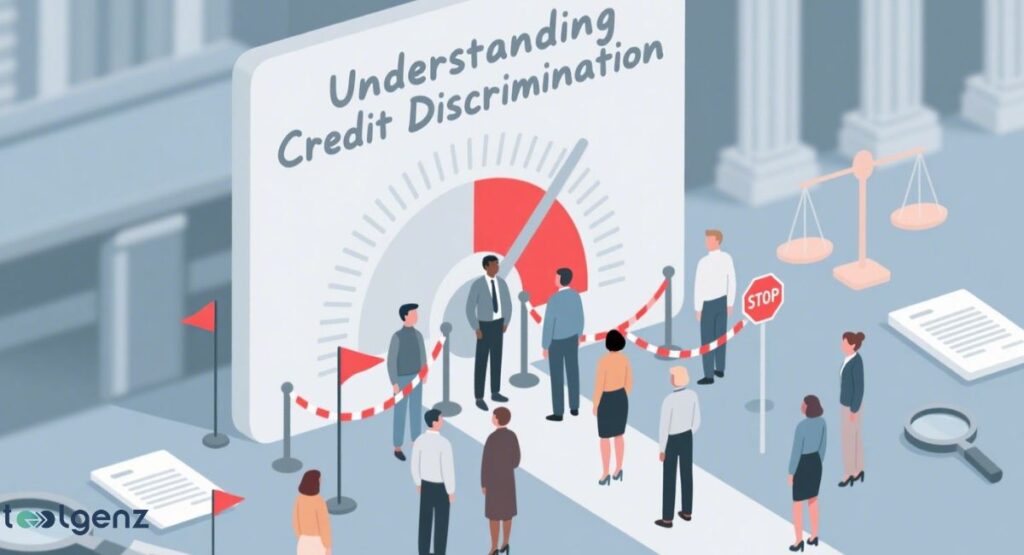
Credit discrimination protections are part of the Consumer Credit Protection Act. This law says lenders cannot treat you unfairly based on race, gender, religion, age, or if you receive public assistance. Sadly, many still face discrimination today.
If you were denied a loan and the reason seems unfair, it could be a violation of your rights. Watch for signs like different terms offered without reason or banks refusing service when others qualify.
Always request a written explanation when credit is denied. Review your credit report errors, and make sure there are no unauthorized transactions or wrong credit utilization data affecting your score.
Reporting issues quickly can help you get justice and restore your credit reputation.
8. Get Legal Help If You’ve Been Discriminated Against
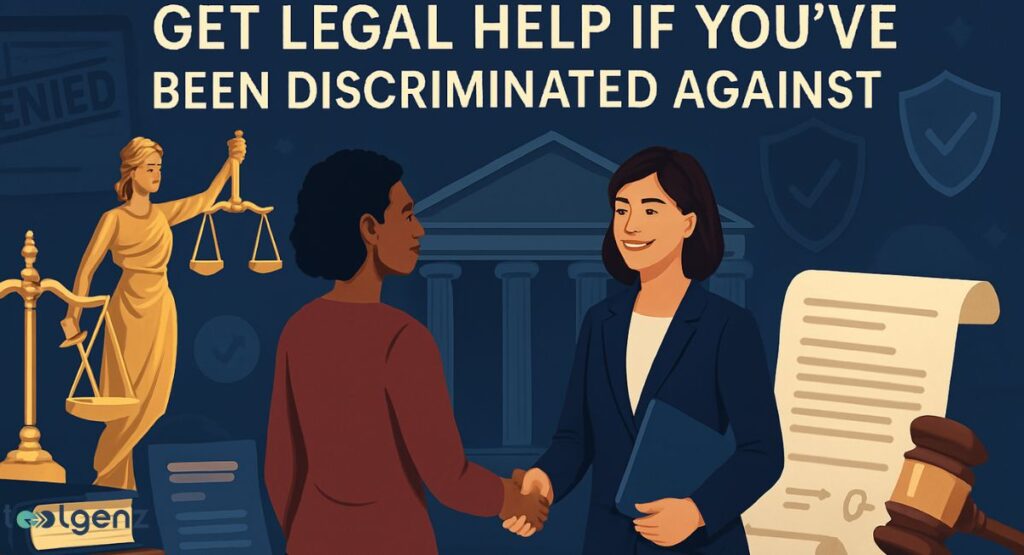
If you believe you’ve faced credit discrimination, you should report it to the Consumer Financial Protection Bureau (CFPB). You can also talk to a lawyer or a nonprofit credit advocate. These experts know how to fight for your rights.
Some credit protection services in this guide also offer legal support or referrals. They can help with cases of identity theft, credit report errors, and illegal rejections. If needed, gather your records and file a formal complaint.
Gather everything — credit reports, bank records, and lender letters. The more proof you have, the stronger your case, and any letters from lenders.
Having full documentation strengthens your case and helps legal teams or regulators act faster to protect your rights.
Take Control of Your Credit in 2025
Protecting your credit has never been more important. With the rise in fraud and Equifax data breach-style events, you need smart tools. Using the best credit protection services in 2025 gives you peace of mind and safety.
Don’t wait until it’s too late. Start now by choosing a trusted service, checking your report, and protecting your personal data. Your credit score, future loans, and identity depend on it.
Think of credit monitoring and fraud detection tools as your first line of defense. Combine them with secure habits like enabling bank account alerts, using Aura VPN, and keeping track of unauthorized transactions.
Taking action today can save you from stress, money loss, and long-term damage tomorrow.
FAQs
Is CreditGUARD legit?
Yes—CreditGUARD of America is a long‑standing, BBB‑accredited consumer credit counseling agency with an A+ rating and NFCC/COA certifications (bbb.org).
How does CreditGUARD work?
They offer nonprofit credit counseling and debt management plans, consolidating payments to your creditors through a trust account (bills.com).
Can you cancel a CreditGUARD?
Yes—you can cancel anytime; terms depend on your debt management agreement, so review your contract and contact the agency directly (bills.com).
What does CreditGUARD need to get approved?
Typically, you need at least $2,000 in unsecured debt to qualify for their program (reddit.com, curadebt.com).
Does debt relief ruin my credit?
Debt relief or settlement can lower your credit score and remain on reports for up to seven years, though the impact fades over time (incharge.org).


